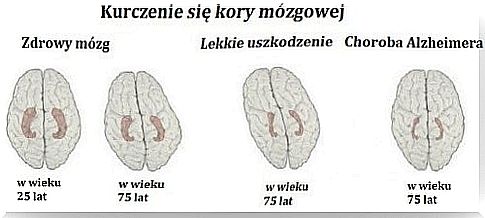Alzheimer – Recognize Early Signs

Alzheimer’s is a progressive brain disease that directly affects memory, thought, and behavior. This type of dementia manifests as a loss of memory and intellectual capacity, affecting not only the person’s life but also those around them.
About 60-80% of dementia cases worldwide are due to Alzheimer’s disease. In the United States alone, there are over 5.5 million people affected by the disease. It is estimated that by 2030 this number will increase to 16 million.
Alzheimer’s primarily affects the elderly, however, it may begin to develop as early as around the age of 30. Recognizing symptoms early and making a correct diagnosis allow you to start treatment. Read the article to find out what signals to look for.
Difficulty planning and solving problems

For some people, Alzheimer’s initially manifests itself primarily with difficulty planning and dealing with numerical data. For example, these problems can include forgetting to pay bills or difficulty remembering a simple recipe.
Alzheimer’s and problems with performing simple activities
Alzheimer’s disease can be difficult in even the simplest of activities – both at home and at work. Problems remembering an address, planning a family budget or understanding the rules of a board game are signals that something disturbing is going on.
Confusion
Loss of motivation

Alzheimer’s also causes emotional changes that cause a person to lose interest in things they used to enjoy. Sudden passivity and avoidance of contact with people can be a signal that something is wrong.
Difficulty expressing yourself
Alzheimer’s disease can lead to problems with conducting conversations – it is associated with loss of choice of words or forgetting them. Loss of speech and writing skills is also possible.
It is very common to find it difficult to find the right word – a person may say “that writing stick” instead of “pen”, for example.
Putting things in the wrong places
For example, putting things in the wrong places can be an early symptom of Alzheimer’s as the first sign of a brain disorder. Such a person may, for example, put an iron in the refrigerator and forget about it.
Inability to make decisions

Alzheimer’s disease can limit or even completely deprive a person of the ability to make decisions, including financial ones. Difficulties in managing money can lead to ill-considered purchases – the person becomes a potential victim of fraud.
No initiative
A lack of interest in family gatherings may be a signal that something is going on. Alzheimer’s leads to a loss of initiative and willingness to participate in social activities, projects or sports.
In extreme cases, it may even be a loss of any desire for any contact with other people.
Mood and personality changes
Mood swings or personality changes are one of the most noticeable signs of Alzheimer’s, both in the early and more advanced stages of the disease.
The sick person becomes more suspicious, depressed, anxious and confused. In addition, she may become irritated and easily become angry, which affects her environment and her relatives.









